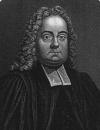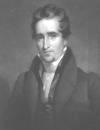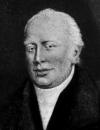The Lord's Prayer
in Welsh
Ein Tad yn y nefoedd,
sancteiddier dy enw;
deled dy deyrnas;
gwneler dy ewyllys,
ar y ddaear fel yn y nef.
Dyro inni heddiw ein bara beunyddiol,
a maddau inni ein troseddau,
fel yr ym ni wedi maddau i'r rhai a droseddodd yn ein herbyn;
a phaid â'n dwyn i brawf,
ond gwared ni rhag yr Un drwg.
Oherwydd eiddot ti yw'r deyrnas a'r gallu a'r gogoniant am byth. Amen.
(The 1988 Welsh Bible)
Line-by-line commentary
Explore the Lord's Prayer through the writings of three famous biblical theologians (Matthew Henry, Adam Clarke and Albert Barnes).
The Lord's prayer opens with addressing God as "Father who art in Heaven". There are then seven petitions. The first requests are contected with the worship of God ("Hallowed be thy name") and His ways. The next four concern the needs of man - his physical ("Give us today our daily bread"), mental (with temptation) spiritual (against evil) and relational needs (forgiveness). The prayer then concludes with a doxology.
about the commentary writers
In this section you can discover more about the Lord's Prayer through some of the most notable exponents in biblical interpretation.  • Matthew Henry (1662-1714) was a non-conformist English clerygman. His commentaries on the scriptures are intended as a devotional guide to the bible, rather than as a critical study.
• Matthew Henry (1662-1714) was a non-conformist English clerygman. His commentaries on the scriptures are intended as a devotional guide to the bible, rather than as a critical study.
 • Albert Barnes (1798-1870) was a Presbyterian minister and American theologian. His 'New Testament Notes' are invaluable in helping to understand difficult passages of scripture. Barnes frequently references the original Greek to reveal the meaning of the text.
• Albert Barnes (1798-1870) was a Presbyterian minister and American theologian. His 'New Testament Notes' are invaluable in helping to understand difficult passages of scripture. Barnes frequently references the original Greek to reveal the meaning of the text.
 • Adam Clarke (1769 or 62 to 1832) was a Methodist minister and biblical theologian. His extensive commentary on the New Testament, at around 6000 pages long, is one of the longest works on the bible ever written by one person.
• Adam Clarke (1769 or 62 to 1832) was a Methodist minister and biblical theologian. His extensive commentary on the New Testament, at around 6000 pages long, is one of the longest works on the bible ever written by one person.
Go to line-by-line commentary
The Lord's Prayer
A short inspiring reading of this famous prayer:-
We must accept finite disappointment, but never lose infinite hope.
Martin Luther King, Jr. (1929-1968)


